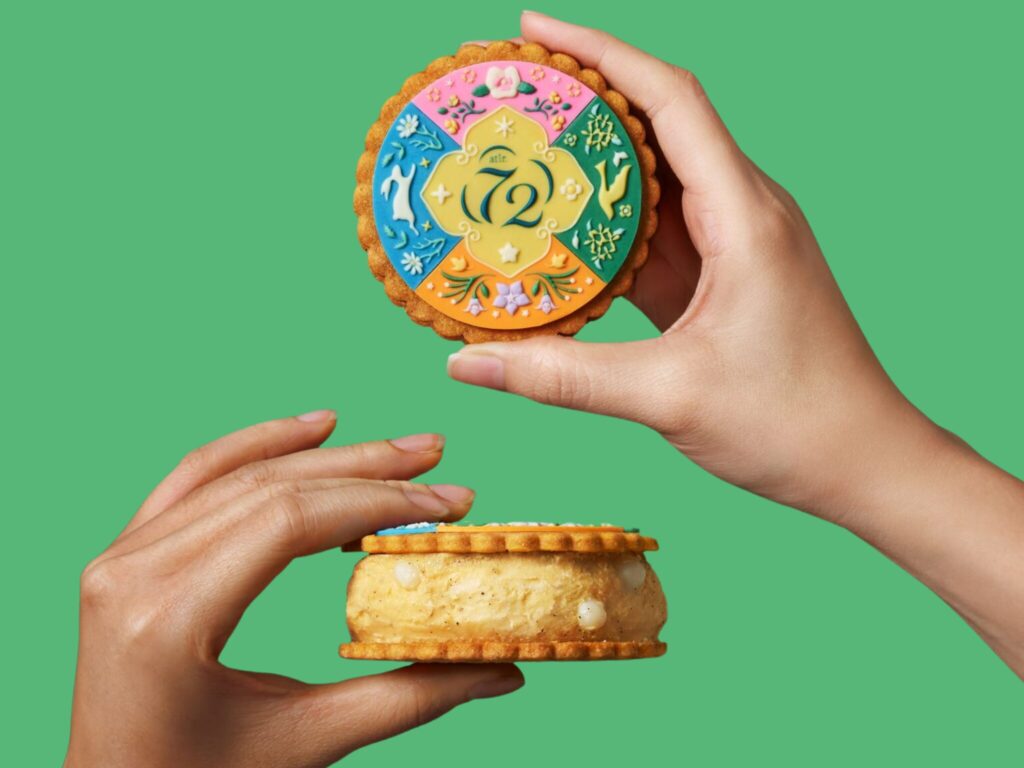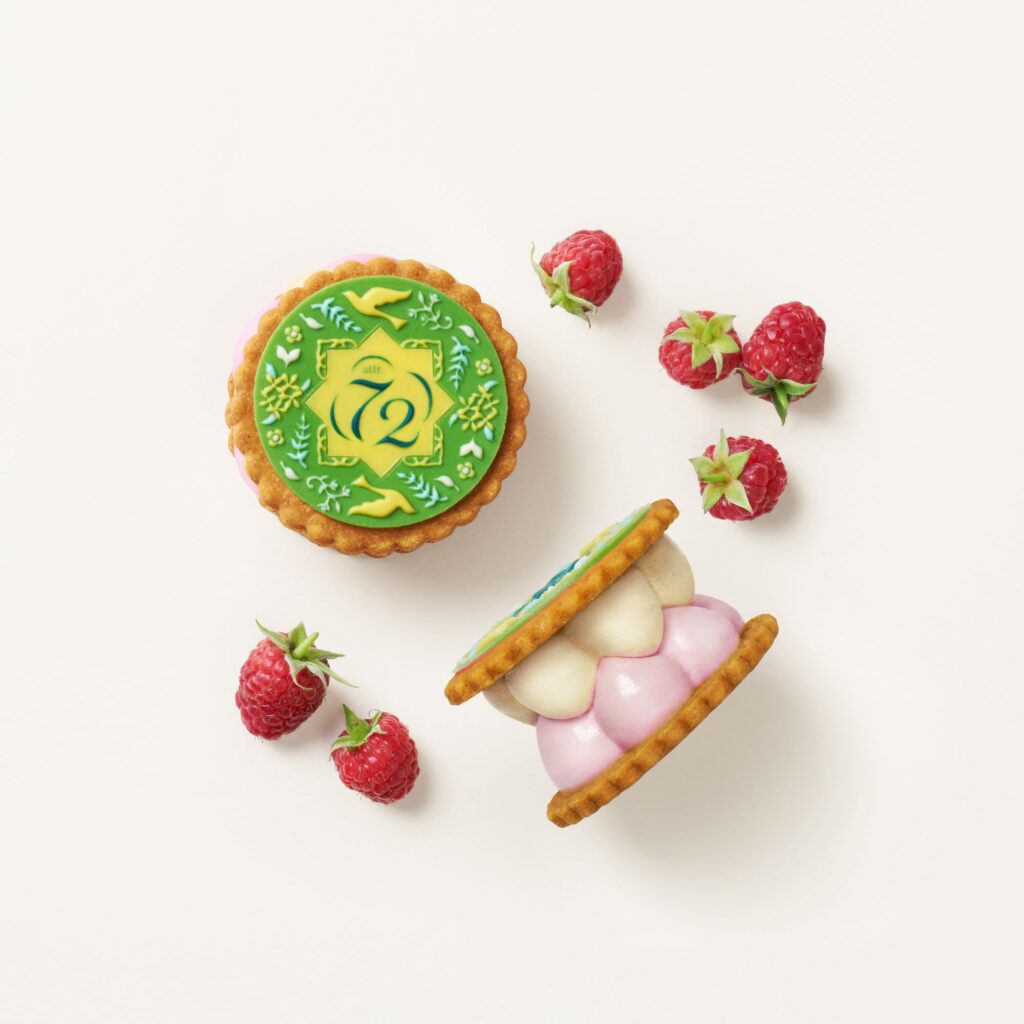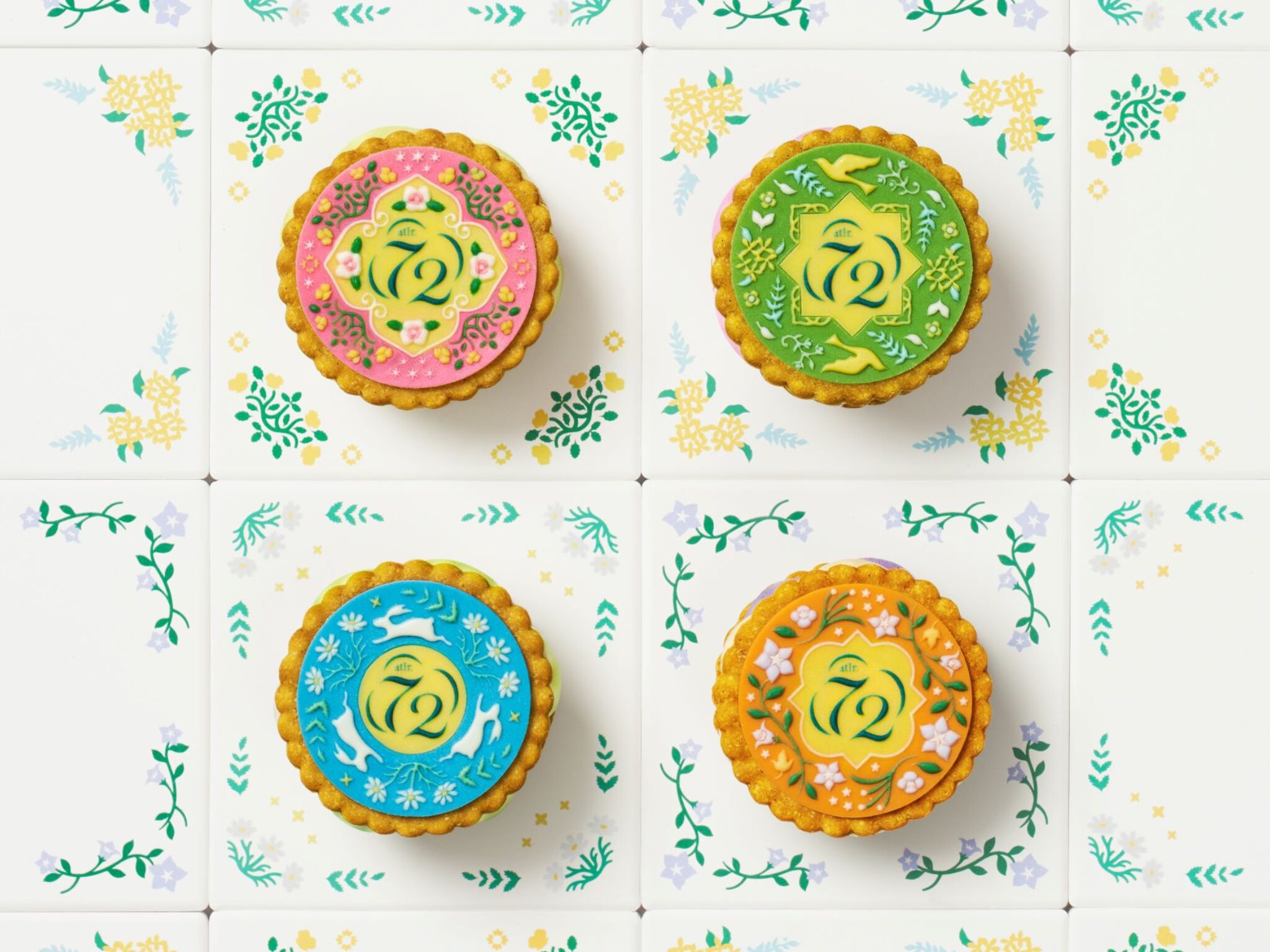Solar Foods, Ajinomoto Roll Out Desserts with Solein Protein from Air in Singapore
4 Mins Read
Solar Foods’s Solein protein from air stars in mooncakes and ice cream sandwiches launched in Singapore under Japanese food giant Ajinomoto’s new Atlr.72 brand.
Finnish startup Solar Foods has introduced the first results of its partnership with Ajinomoto, the Japanese food and drink conglomerate that made MSG famous.
The two companies have come out with Traditional Flowering Mooncakes and Ice Cream Sandwiches made from Solein, which Solar Foods describes as the “world’s most sustainable protein”. It is produced via the fermentation of microbes, which are fed on carbon dioxide, hydrogen and oxygen (instead of sugar) to turn into protein.
Solein will replace dairy in the limited-edition desserts, which are the first products to be launched under Ajinomoto’s Altr.72 brand (pronounced Atelier Seven Two), which is focused on using plant-based, cell-based and microbial ingredients to advance the company’s green business – one of its four growth areas.
The products will be available at Ajinomoto’s pop-up stores at Takashimaya Singapore (August 12) and One Holland Village (August 30), ahead of September’s Mid-Autumn Festival, a harvest festival where mooncakes are gifted to each other.
Solein to advance Ajinomoto’s sustainability aims

Solar Foods and Ajinomoto announced a strategic collaboration in May 2023, focused on product development with Solein and testing market feasibility in Singapore.
Having received regulatory approval in Singapore in October 2022, products made from Solein had already appeared on the market in the city-state. Italian eatery Fico debuted the flavourless gas protein in a vegan chocolate gelato, and Fazer – a majority shareholder of Solar Food – released a Taste the Future chocolate snack bar earlier this year.
The new mooncakes and ice cream sandwiches are the latest products to feature Solein, kicking off the Atlr.72 brand. It’s an extension of Ajinomoto’s green focus, which looks to create planet-friendly food ingredients “in the face of food shortages due to climate change and population growth”.
“With the new brand, Ajinomoto proposes a new food lifestyle that fosters a respect for nature in today’s consumers. Solar Foods is proud to be supporting this ambition, and we share the vision for what the future of food will be,” said Solar Foods co-founder and CEO Pasi Vainikka.
Styled as cookie sandwiches, the Flowering Mooncakes are made with guimuave, a French marshmallow-style sweet made from fruit purée, and come in Japanese yuzu, Kyoto Uji matcha, raspberry, and blackcurrant flavours.
The guimuave is made from agar instead of gelatin, beet sugar, and Okinawan sea salt. Solein, meanwhile, is used as a partial butter substitute in the recipe, supervised by a “well-known Japanese pâtissier”.
The ice cream sandwiches, meanwhile, contain vanilla ice cream made with Solein (which is said to add to its rich consistency) and mochi stuffed between cookies, which are decorated in colourful Peranakan patterns.
Solar Foods and Ajinomoto eye global expansion

Once the limited sale period ends, Ajinomoto plans to expand Atlr.72 from sweet products to everyday foods, and take the brand to other countries.
Solar Foods, which plans to be a billion-euro company, expects to enter the US market this year, once it receives Generally Recognized as Safe (GRAS) certification through the Food and Drug Administration. In addition, it is also awaiting novel food approval in the EU, with a launch earmarked for 2025-26, and has applied in the UK too.
The startup has raised over $47M in equity funding to date, including an €8M ($8.8M) Series B round last November, as well as $32M in debt financing. And in April, it opened a large-scale production facility called Factory 01, allowing it to produce the same amount of protein as a dairy farm with 300 cows per day.
Plans for Factory 02 are underway too. “Factory 01 is already a bona fide factory, the kind you could see in an industrial park. But to realise Solein’s full potential, we think bigger,” Vainikka has previously said. “That’s why Factory 02 will eventually scale up the bioprocess as well as the production process: it would not be located in an industrial park, it would more likely fill an industrial park.”
Speaking about the latest partnership, he said: “Ajinomoto’s launch marks an important milestone on our journey to renew existing food categories and reduce the environmental impact of food production.”
A life-cycle analysis conducted has found that Solein’s GHG emissions are just 1% of those generated by conventional meat, and 20% of plant-based proteins. The company has also earned a Nasdaq Green Equity Designation, which recognises businesses that generate more than half of their turnover from green activities.
“It’s a major step for the commercial use of Solein as our new factory is now ramping up its production, paving the way for the introduction of Solein to people’s plates,” Vainikka added.
The market for foods made with air is expanding quickly and is set to reach $100M by 2032, propelled by the likes of not just Solar Foods, but also Kiverdi’s Air Protein, NovoNutrients, Calysta (all US), Arkeon Biotechnologies (Austria), and Deep Branch Biotech (UK).



